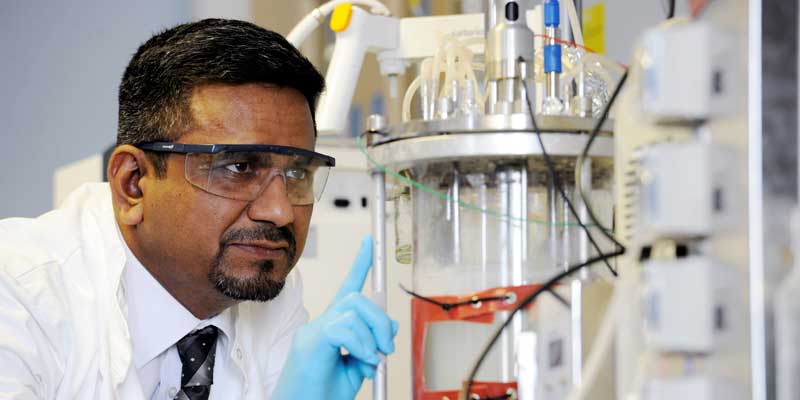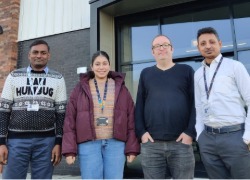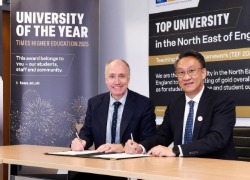Teesside University's biotech firm TeeGene joins British delegation to New Zealand
TeeGene Biotech has been selected to take part in a British research and development (R&D) delegation to New Zealand.

The Teesside University spin-out company, based at The Wilton Centre, is taking part in a trip in February 2016 which aims to establish collaborative R&D links in agriculture and biotechnology.
The international visit is sponsored by the Department for Business, Innovation & Skills (BIS) which invests in skills and education and the schedule for the week is being organised by the British High Commission in Wellington.
The intention is to create agriculture and plant and food research connections with New Zealand’s Crown Research Institutes, leading universities and specialist biotech firms.
Following a visit in March 2014 Professor Robin Grimes, the Foreign Office Chief Science Adviser, confirmed the value of both countries as scientific partners for each other and subsequently highlighted and strengthened UK and New Zealand links in commercially-orientated research and development.
Dr Steve Thompson, science officer at the High Commission, said: 'Over 70 hard collaborations have resulted over the eight years of the programme to date, with commercial benefits accruing for both countries.'
Dr Pattanathu Rahman, Founding Director of TeeGene Biotech, is a Senior Lecturer in Process Engineering and Biotechnology at Teesside University.
He said: 'We are hoping to meet naturally organic and biobased product manufacturers and associated institutions to establish UK-NZ collaborative projects, particularly R&D collaboration in our area of expertise in biological surfactants and emulsifiers using industrial biotechnology.
'Some of the TeeGene’s manufacturing platform needs surplus sunlight to activate the production pathways of bio-vehicles. New Zealand’s tropical climatic conditions are suitable to achieve a high yield with low energy consumptions for economic advantage and complementary to TeeGene’s existing R&D platform.'
TeeGene has a track record of successful collaboration projects. Last year, it used Belgium-based Biobase Europe Pilot Plant facilities (BBEPP) for the biomanufacturing of biosurfactants and used Biotechnology and Biological Sciences Research Council (BBSRC) innovation funding for algal technology to manufacture value added soil conditioners and fuel substitutes from farming waste water.
Dr Rahman added: 'It is a prestigious international networking event and will lead to a number of new collaborative opportunities as both countries have common interests to develop their agriculture and biotech sectors.'
 Groundbreaking project to unlock nuclear energy's role in
...
Groundbreaking project to unlock nuclear energy's role in
... Start the new year by expanding your knowledge
Start the new year by expanding your knowledge  Teesside University strengthens long-standing partnership
...
Teesside University strengthens long-standing partnership
...